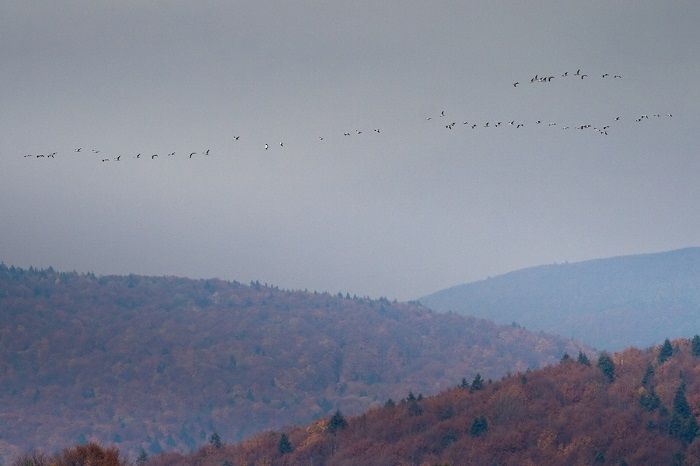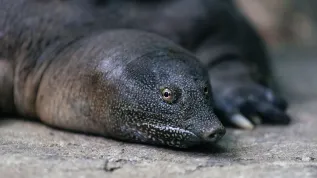
Climate change is shifting bird ranges across Europe, but geographic barriers 'mediate' their movement. An international team of scientists with the participation of Polish researchers described this phenomenon in the Proceedings of the National Academy of Sciences.
Many bird species in Europe have clearly shifted their distribution ranges to the north-east over the last 30 years. Although bird communities have been moving towards cooler areas, they did not do so fast enough to keep up with the rising temperatures. Range changes have been further constrained by natural geographic barriers such as mountain ranges and sea coasts.
Climate change has a significant impact on ecosystems, leading to changes in the composition of species communities as a result of shifting ranges of occurrence. However, the response of individual bird species to climate change is not always as expected. In a paper published in the prestigious journal Proceedings of the National Academy of Sciences(www.pnas.org/doi/10.1073/pnas.2213330120 ), researchers analysed the impact of vast geographical obstacles, such as mountain ranges and sea coasts, on changes in the distribution of almost all European bird species, caused by climate change over the last 30 years.
'The published research results are based on a comparison of data from two European atlases summarizing the distribution of breeding birds from the 1980s and the first decade of the 21st century,’ says Tomasz Chodkiewicz, co-author of the study from the National Society for the Protection of Birds (OTOP) and the Polish Academy of Sciences, quoted in the press release. 'Data for Poland were collected as part of a wide cooperation of ornithologists under the leadership of OTOP'.
According to the authors of the study, two-thirds of bird communities have moved to cooler areas over the past 30 years, shifting by an average of 100 kilometres, especially towards the north and east. Changes in the ranges of individual species depended on geographical barriers, OTOP representatives report in the press release.

'Bird communities moved farther when they were away from shorelines, indicating that sea coasts may act as barriers for species to keep pace with climate change,’ says the study co-author Tomasz Wilk from the National Society for the Protection of Birds.
In general, bird communities are moving slower than the rate of climate warming. This may mean that local climatic conditions become unsuitable for some species of birds, which at the same time are unable to move to thermally more favourable areas due to geographical barriers. Such species may be threatened with extinction.
The study shows that even highly mobile bird species can have difficulties with barriers such as mountains or coastlines, which prevents them from keeping up with rapid temperature changes.
For example, the treecreeper, middle spotted woodpecker and common chiffchaff will have difficulty shifting their ranges from the Baltic to colder areas such as Finland, as the Baltic Sea acts as a barrier between these areas.
PAP - Science in Poland
zan/ agt/
tr. RL













